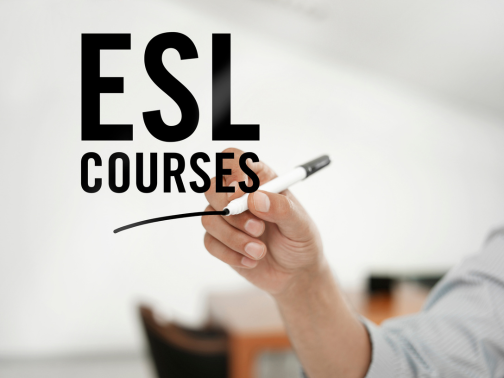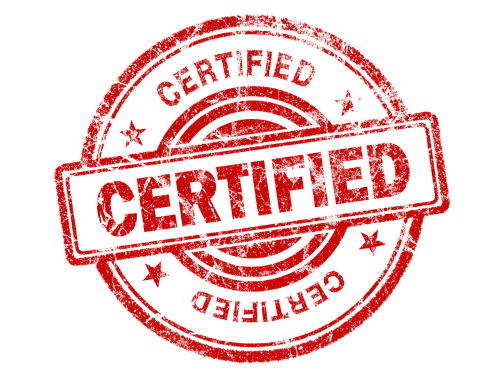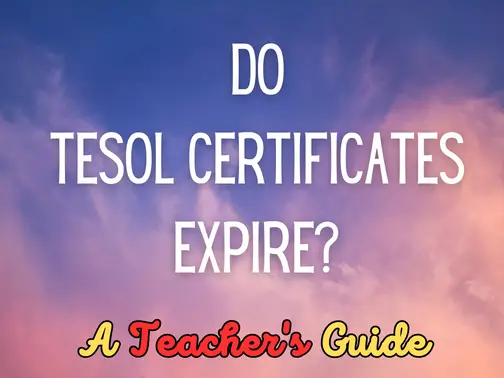Contents
Toggle
Meet David De’ Ath, co-founder, editor, and writer at Wonderful World English. With his extensive background as an English teacher, David provides valuable insights and practical tips on ESL for students and teachers alike.
Teaching English can be a gratifying career for anyone who wants to earn a handsome living while helping others reach their goals.
With a growing demand for English as a Second Language (ESL) teachers around the world, more people than ever are looking to embark on a career in this field.
Becoming an English teacher is not the easiest task, but it is very doable when applicants meet the proper criteria.
One prerequisite for teaching ESL is for teachers to hold the necessary qualifications.
In the world of ESL, TESOL certificates are required in order to be considered for many teaching positions around the world.
TESOL stands for Teaching English to Speakers of Other Languages.
A TESOL certificate is necessary for anyone wanting to teach English as a second language in foreign countries such as China, Japan, Korea, and many others. Usually, most TESOL certificates don’t expire once they have been obtained, including the two most popular ones, CELTA and Trinity CertTESOL, but some exist with limitations.
I am an experienced ESL teacher who has been living in China for several years.
I can attest to the importance of TESOL qualifications and will offer insights into them today.
If you are an English teacher looking to add to their resume or are interested in becoming one, this is for you.
We will explore the world of TESOL certificates and cover relevant details such as expiry information, comparisons between certifications, and how to obtain a TESOL.
Without further adieu, let’s jump in!

What are TESOL Certificates?
TESOL certificates are internationally recognized teaching accreditations that allow an individual to teach English to non-native speakers worldwide.
TESOL is the abbreviation for Teaching English to Speakers of Other Languages.
An English teacher with a TESOL certification can teach English as a Foreign Language (EFL) and a Second Language (ESL).
These are essentially the same thing but are references to different environments.
Teaching English as a Foreign Language means teaching English to non-native individuals in countries where English is not the primary language, such as China, Japan, UAE, Spain, and South Korea, among many others.
Teaching English to non-native individuals in a country where English is the official language, such as teaching English to a foreign person in the United Kingdom, refers to teaching English as a Second Language.
Check out the guide below to learn more about TESOL and its origins!
Related Article: What is TESOL? – Everything You Need to Know

Do TESOL Certificates Expire?
In general, the majority of TESOL certificates do not expire, but there are a few exceptions.
The two most popular TESOL certifications include Cambridge CELTA (Certificate in Teaching English to Speakers of Other Languages) and the Trinity CertTESOL (Certificate in Teaching English to Speakers of Other Languages).
Once you earn these certificates, they do not expire and last a lifetime.
However, some TESOL certifications do expire.
One such example is the TESOL Core Certificate Program, which the TESOL International Association offers.
This certificate is valid only for five years.
After five years, an individual must demonstrate that they have improved and developed their English skills to get their certification renewed.
Even though most TESOL certificates don’t expire, teachers continue to obtain new certifications and qualifications to gain more training hours, increase their experience, and get better job opportunities.
Some certifications include particular focal points such as teaching English online, teaching young learners, etc.

Is the TEFL Certificate the Same as TESOL?
In general, TESOL is an umbrella term that encompasses TEFL.
Though these certificates enable an individual to teach English to non-native speakers, there is a slight difference.
While the TEFL certificate enables an individual to teach English as a foreign language (in a country where English is not the official or primary language), whereas TESOL enables an individual to teach English in any setting, whether it is an English-speaking country or a foreign country where English is not the official language.
Types of TESOL Certificates
There are multiple types of TESOL certificates depending on the institution that offers them and the mode of instruction:
1. Types Based on the Mode of Education
Below are the different types of TESOL certificates that are based on different modes of instruction:
– In-Class TESOL Certificates
These certificates are acquired through traditional classroom-based learning.
Applicants have to attend class in person, usually at a language school.
There, they learn theoretically and practically under the observation of experienced teachers.
2. Online TESOL Certificates
As the name suggests, these certificates are acquired through online learning.
Online TESOL certificates offer more flexibility, allowing students to study at their own pace from anywhere in the world.
These programs involve online study materials, assignments, and virtual classes.
3. Hybrid TESOL Certificates
These types of courses are a blend of online and in-class learning.
Students have to complete a combination of virtual tasks as well as in-class work.
These courses offer the comfort of online study along with face-to-face practical teaching experience.

2. Other Types:
Below are some other the other major qualifications that fall under the umbrella of TESOL:
– TEFL (Teaching English as a Foreign Language) Certificate
This certificate involves teaching English as a foreign language.
This simply means teaching English to non-native speakers in a country where English is not the official language.
TEFL is the most common qualification among those who want to teach English in foreign countries, but is it worth getting, or are there better options?
Click the link below to find out!
Related Article: Is TEFL Worth It? The Pros and Cons of TEFL Certificates
– CELTA (Certificate In English Language Teaching to Adults)
Cambridge Assessment English offers this certificate.
This certificate enables an individual to teach English specifically to adult learners.
Click the guide below to find out the differences between CELTA and TEFL certificates.
Related Article: What’s the Difference Between CELTA and TEFL? – The Guide
– DELTA (Diploma in the English Language Teaching to Adults)
This is an advanced form of the CELTA and is also offered by Cambridge Assessment English.
This qualification suits experienced English language teachers who want to improve their skills and teaching experience.
– TESOL for Young Learners
This certificate is specifically designed to enable an individual to teach English to young learners, typically children ranging from 3-12 years of age.
This certification equips teachers with knowledge and methods to instruct and engage young learners.
– TESL (Teaching English as a Second Language) Certificate
This certification enables a teacher to teach English to non-native speakers in a country where English is the official language.
For example, teaching English to Chinese students in the UK.

How to Obtain a TESOL Certificate
Following are some of the steps in order to get TESOL certified:
1. Choose Preference
First, applicants must select if they prefer in-person, online, or a combination of the two modes of instruction based on their daily schedule and workload.
This decision will be heavily influenced by where they live.
If the applicant has a job and the work and class hours are likely to overlap, they should register online.
2. Research Courses
Next, it is important to conduct extensive research to find a TESOL course that fits the applicant’s schedule.
Most foreign language schools will expect their teachers to have completed at least a 120-hour TESOL course.
Completing a 120-hour TESOL course will increase your chances of landing a good job.
Looking for reputable course providers that offer high-quality training and assistance is essential.
This can be done by looking at reviews and testimonials online.
3. Purchase & Complete the Course
Once a suitable course has been found, the applicant should pay the fee and complete the course.
After completing their TESOL training, they will be awarded a TESOL certification, which means they are now qualified to teach English to non-native speakers!

Conclusion
TESOL stands for Teaching English to Speakers of Other Languages, and it is a broad term that includes different areas of teaching English to non-native speakers.
It is often required by language institutions all over the world that teachers hold a TESOL qualification to show they hold at least a basic understanding of teaching ESL.
Holders of a TESOL certificate will gain access to teaching positions all over the world, especially if they hold a bachelor’s degree as well.
TESOL certificates do not expire, with a few exceptions.
When looking for a TESOL certificate, it’s important to research and choose a reputable provider.
We hope this helps you better understand TESOL certifications and aids you on your journey.
Please feel free to reach out and contact us if you have any questions related to the world of English language learning.
Have a great day!
Image Attribution: All images licensed via canva.com





